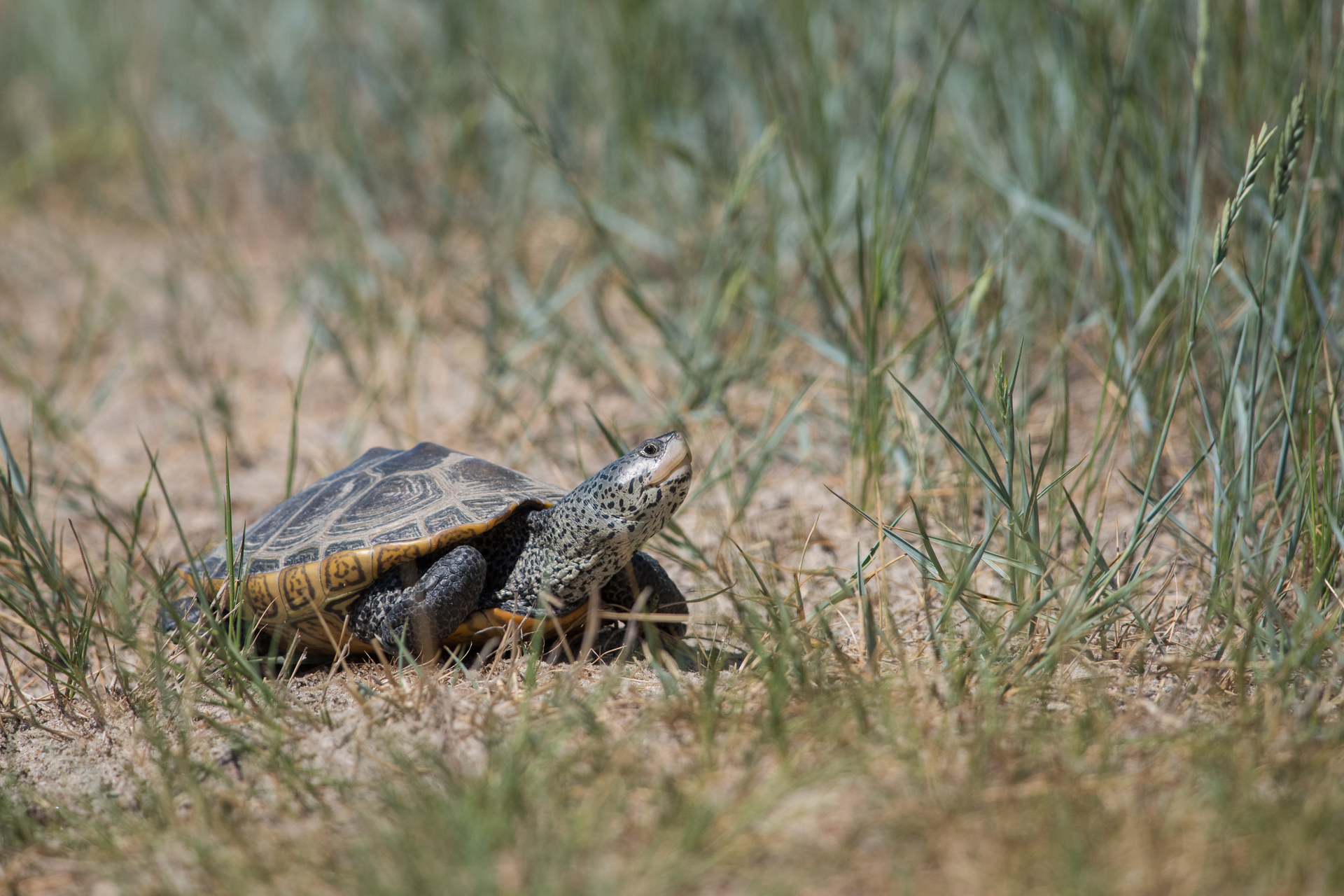Gearing Up for Terrapin Nesting Season
June 26, 2023
Terrapin nesting season is well underway! A spurt of warm, humid weather in early June resulted in our first nest in Orleans. Several days later, Eastham recorded its first, followed by North Wellfleet, Lieutenant Island and the sanctuary. One of the busiest shifts so far occurred on Lieutenant Island where volunteers protected as many as 14 nests in one afternoon!
New Troops
We’re also excited to report that our Wellfleet Bay volunteer corps has grown by an amazing 40 members this year! Covering two shifts a day in multiple nesting locations requires a small army of enthusiastic, hardworking folks, so we’re very grateful to those who have signed up.
There are also two new faces on our terrapin field tech team. Jessica Ciarcia, who’s marking her fourth season as terrapin program coordinator, is joined by Ben Chester and Eamon Caffrey. Ben majored in biochemistry at Connecticut College where he graduated last spring, and Eamon graduated this year from University of Vermont with a degree in wildlife and fisheries biology.
A Familiar Face
Terrapin volunteer and researcher Barbara Brennessel met up with a turtle she’d encountered several times before in Wellfleet’s Indian Neck area. The terrapin was first seen and given a PIT tag (like a pet ID chip) in 2018. She was seen again in 2020 and also last year, all in the same general area. PIT tags allow us to compare a turtle’s overall wellbeing with their previous weights and sizes, new or healed injuries, and, of course, confirm that the turtle is still alive and producing eggs!
Testing A Nest Protection Method
Sanctuary visitors may notice an experiment underway in a couple of our turtle gardens. One garden has been covered in mulch. The question we’re trying to answer is whether mulch prevents maggots which can infiltrate a nest and eat the eggs. The idea for the test came from a homeowner’s yard on Lieutenant Island which hosts a number of nests every year. The yard uses mulch between plantings and we’ve noted that those nests never attract the flies, even during last year’s hot, dry summer when maggots (fly larvae) thrived at so many other nest sites. We’ll keep you posted!



